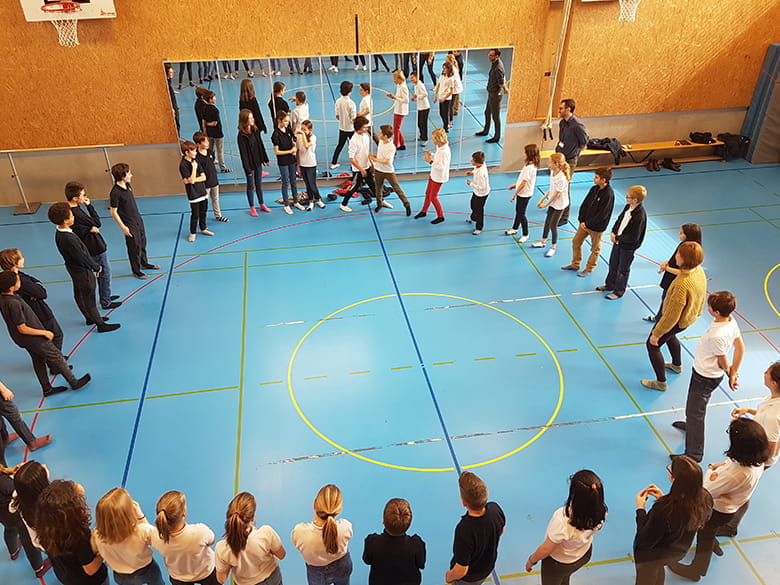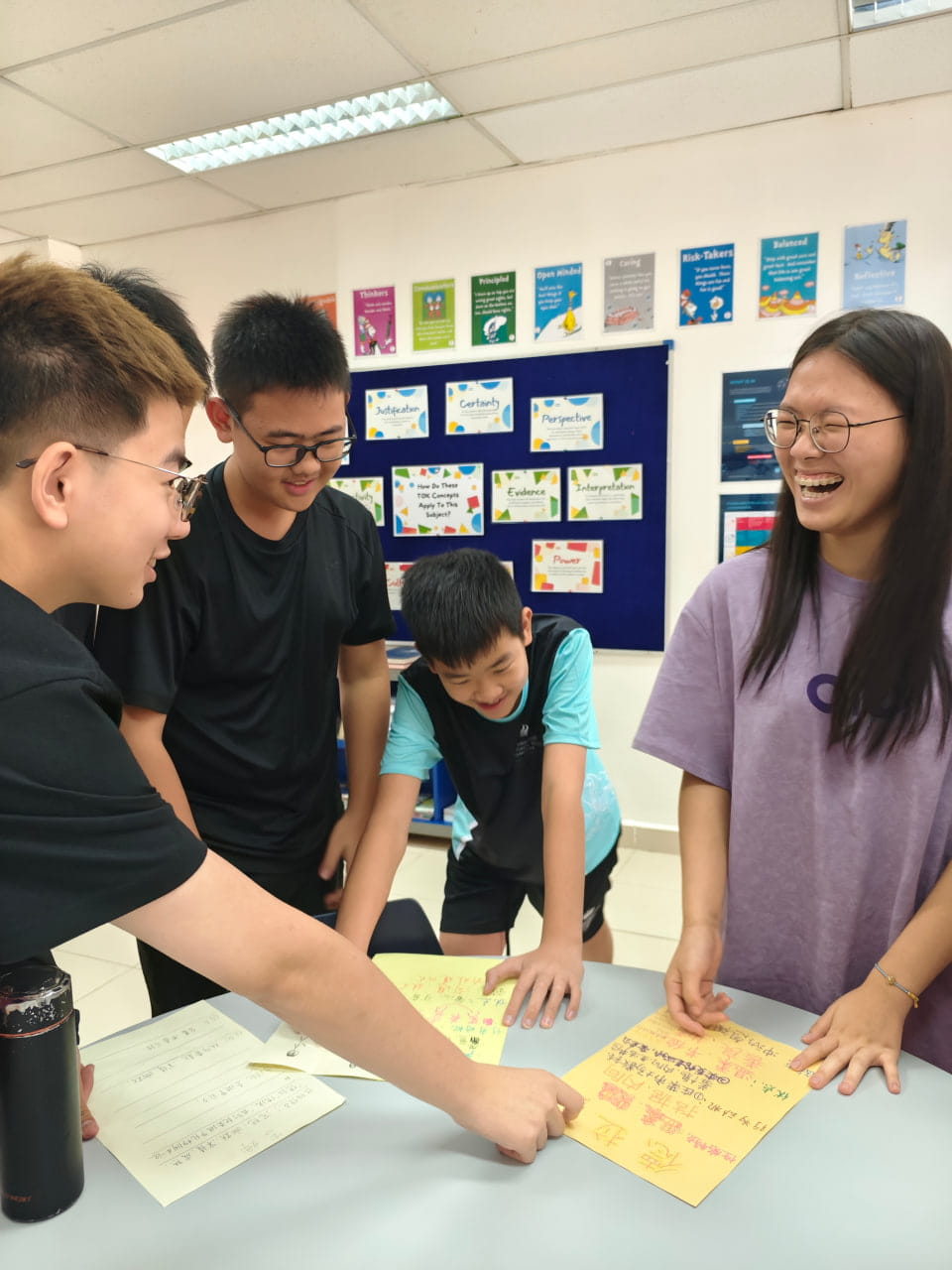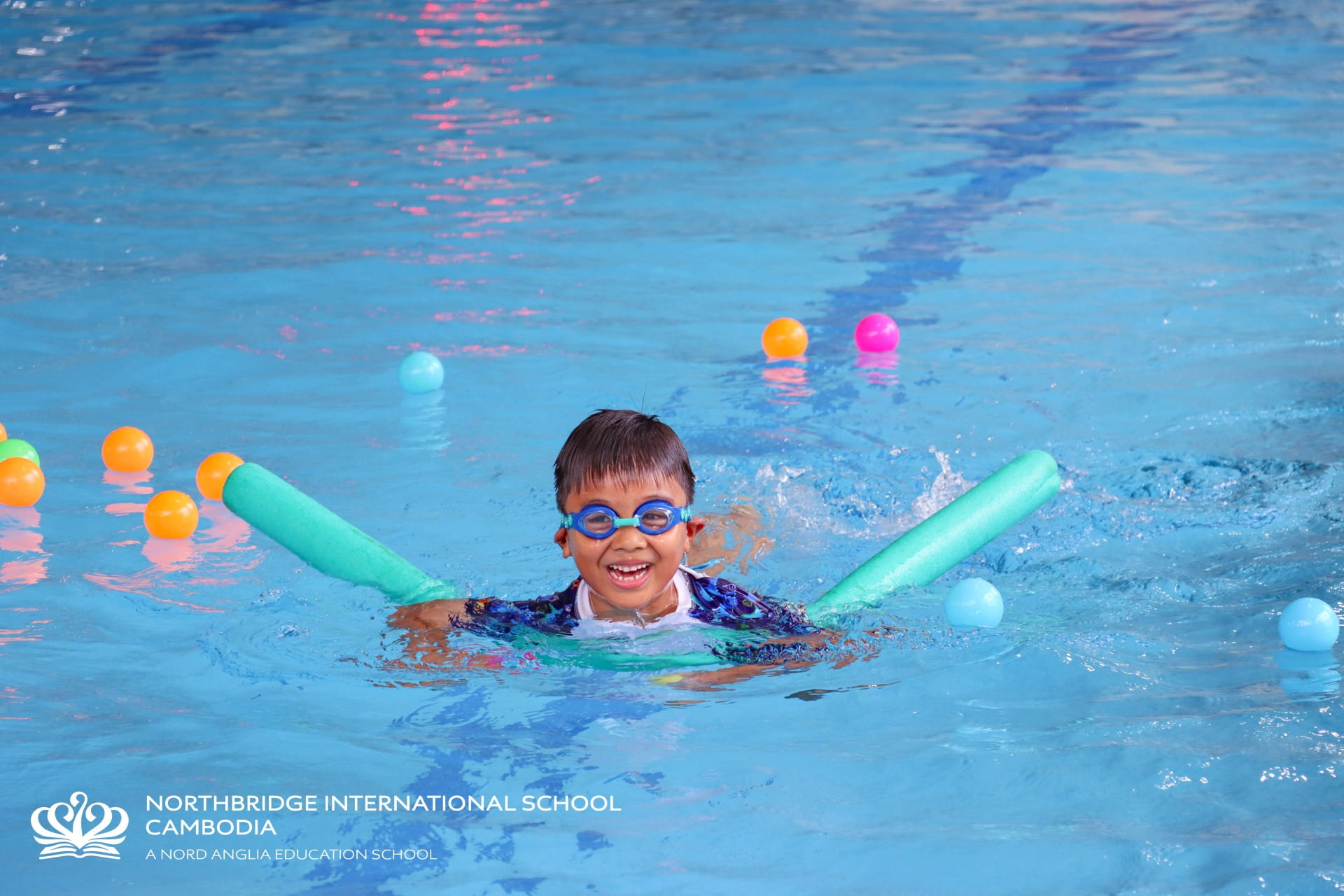How Northbridge benefits from visits by alumni artists from The Juilliard School Alumni artists from The Juilliard School frequently visit Nord Anglia Education schools around the world, including Northbridge International School Cambodia, transforming the connection our students have to the performing arts.
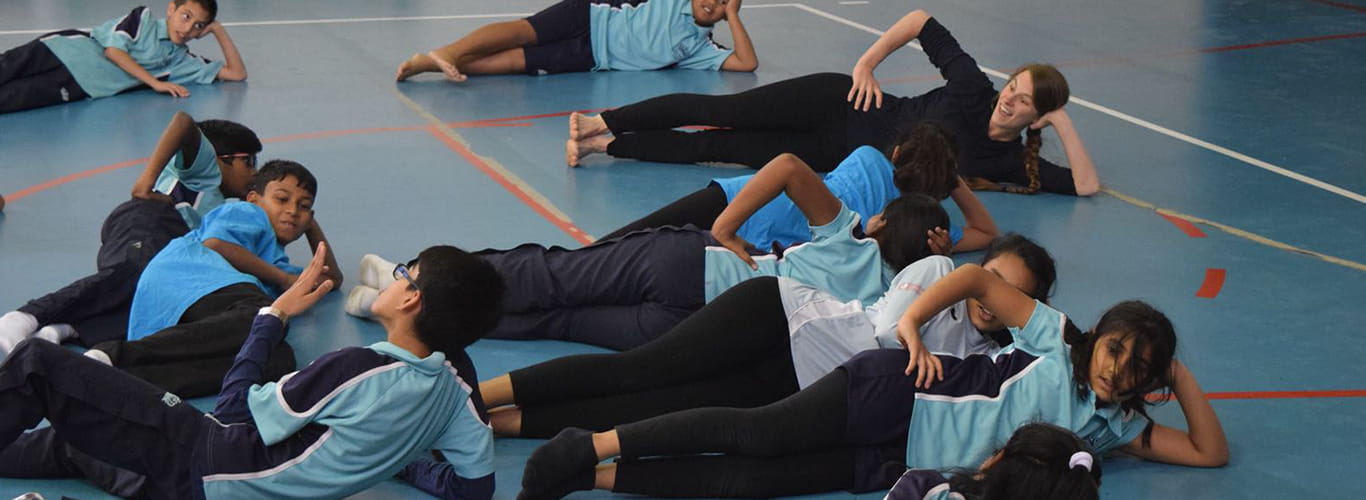
Alumni artists from The Juilliard School frequently visit Nord Anglia Education schools around the world, including Northbridge International School Cambodia, transforming the connection our students have to the performing arts.
Actor and teaching artist Abby Gerdts, along with dancer Ingrid Kapteyn, have visited a number of Nord Anglia Education schools across Asia, Europe and the Middle East. The pair share their experiences teaching at our schools, their thoughts on our upcoming regional festivals, and what motivated and inspired them to pursue careers in the performing arts when they were at school.
Why did you decide to participate as a visiting artist for Nord Anglia Education schools? What motivated you?
Abby Gerdts: Juilliard contacted me because they know that I'm a teaching artist. I was so excited about it because it's a merging of my two worlds. I really respect and cherish my formal and classical training as a performer and how rich that experience was, but I've done so much work in teaching artistry since I've left Juilliard.
When I was at The Julliard School from 2000-2004 there weren’t a lot of resources available if you wanted to become a teaching artist. If you wanted to teach it had to be at a conservatory, or at university level, and I was interested in working with younger students, particularly vulnerable students.
It's been really exciting for me to watch the collaboration between The Juilliard School and Nord Anglia Education get planted, grow and bloom within the schools. Now when I visit Juilliard and I talk to new graduates or students in the drama division, they're very much attuned to the option and opportunities of being a teaching artist and what that can bring to their lives.
Ingrid Kapteyn: The first time I heard of Juilliard spreading programmes across the globe I was in school at Juilliard, but I didn't know what they were about. I had just heard the programmes were connected to activities happening in China.
Three years later when I knew I was going to China for a job I contacted the career office to ask if there was any way I could be useful to them because I was going to be there. When they told me there were Nord Anglia schools looking for dance artists it was perfect. I was eager because I wanted to burst out of the show bubble I was in from my show in Shanghai. I was really excited to work with kids and do something different than what I was doing every night.
Do you feel our students are more engaged and inspired when interacting with a performing artist?
AG: When I was doing a monologue for an assembly at the Hong Kong school where there were probably several hundred kids, I was supposed to be talking to a king and I imagined the king to be standing at the back of the room. When I was yelling at this invisible guy all of the students (at some point) turned around to look and see if I was talking to someone. That's the power of having a professional artist. We're not amateurs, we can actually get people to believe something that’s actually not there. That's the power of student imaginations as well and I think that's remarkable. When I think back to myself at that age, and how moving it was for me, that made a lot of difference. Just to be in proximity to performing artists and the chance to talk to them or ask questions - it's very important.
When I was young every opportunity I got, every time there was an assembly with a magician or anyone in the performing world, I was mesmerised. In those days it really rocked my world. It was profoundly important for me to see those people and see that there's a person doing what I want to do.
IK: I've never had an experience at a Nord Anglia school where everyone in the room wasn't fully engaged. It's like an equaliser, especially because children have this bright optimism of "anything is possible." They all dive in with equal energy and enthusiasm and it's exciting to witness.
I’ve had teachers warn me saying this group of students may be shy, or this group may be resistant. You never know what you'll find from groups of kids who haven't necessarily ever experienced dance. When we all get into the room together my task is about how can I convey a sense of what being an artist is and what creativity is.
One particularly moving class was in one of the Qatar schools. It was in that school that I found such a high level of exuberance from everyone. Maybe it was because dance wasn't what they expected. There was this high energy bouncing off the walls. They were really engaging with the material.
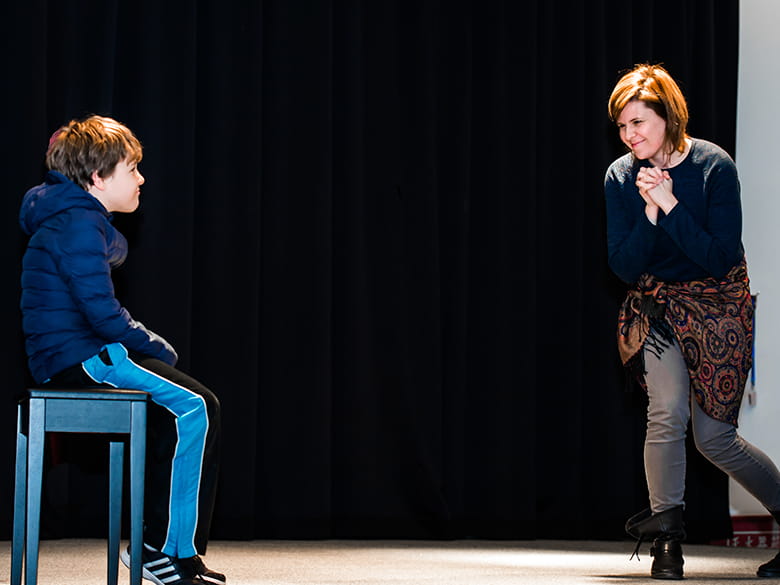
How can a regional performing arts festival further inspire, engage and awaken a love for the performing arts in our students? Would you have appreciated something like this when you were a student?
AG: I have no doubt about the importance of these kind of events. The thing is you meet your tribe; you meet your people. You realise you're not alone. There may be a small percentage of students in your school, but when you go to a regional festival you get encouragement. You start to realise — there are others here who are just as passionate about this as I am.
There are moments when you feel weird sometimes, or your parents can be hesitant wondering if this is something you can really do as a profession. You won’t know until you go out into the world and meet people who are like-minded, and you go to theatres and you go to a festival.
This is very exciting. I'm so excited for the students. To go and meet other students, other teachers, other artists, at a festival will certainly change things for them and make them realise that this isn't out of reach, they’re not just dreaming. There are other people who think like me and it is possible.
IK: I think it's a fabulous idea. The performing arts are about sharing and about bringing people together. It's a communicative exercise, and if a student is only experiencing the art form in isolated classes weekly, monthly, or maybe only when a visiting artist decides to drop by once a year, then that would feel small. Going to a festival and getting a sense of the scale of that kind of art, that it happens between people every day, all the time, everywhere. It really helps colour in the picture of what it means to be an artist.
When you were a student, what would you have wanted to know before embarking on a career in the performing arts?
AG: I didn't realise this until very recently, but I see that my creative/artistic voice is important. There are things that I want to share; ideas, creative endeavours. I realise I have something to offer.
I find that the world, because of our phones and the internet, is becoming smaller and more accessible. At the same time we're becoming more insulated and more confined (maybe because of our phones too) to our little bubbles, particularly for students.
I really believe if you're going to make a career in the arts there's something driving you and it comes from a need to create, a need to say something. A need to express yourself and I would have encouraged my younger self to listen to that and be confident of it, that I do have something to share, that I do have something of value and of worth that is worth sharing. It took me a long time to figure that out.
It's hard because sometimes you think you're not good enough, or not worthy enough. "I'm just a student or a teenager" but there's a lot that we have in our toolboxes and in our shared experiences, no one can take that away from you. You shouldn't be afraid to share your experiences.
IK: It’s around high school when the study of technique can become the most intense and the discipline and the time it takes to train your body or fingers, or whatever your art form is, feels like a constant exercise in trying to accomplishment the work of other people who are more advanced than you are professionally.
You train yourself to do what other people can do, but ultimately all of that work that you do is in order to become the best possible version of yourself you can be. Being an artist is about knowing how to (in the most brutally and raw and honest way) be yourself, which is something that no one else can do. So that reminder of how personal the performing arts is, comes to mind.
Also, being an artist is a lifestyle. There's no real way to teach that, it's something that you have to experience but it's not just a job or a career path. It's something that continues through every millisecond of your life.


